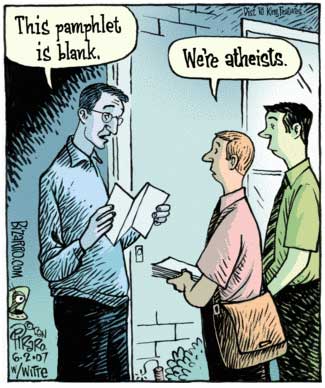Is morality merely a matter of opinion? Many in our culture today believe that it is. They believe issues like same sex marriage and abortion are up to each individual to decide. Moral relativism is the view that when it comes to moral issues there are no universally objective answers on ethics, no inappropriate judgments, no rational means to make moral distinctions that apply every time, in all situations, for all people.[1] Thus, morals are subjective opinions in the same way as someone’s taste in music, art or ice cream. A subjective truth claim makes the claimant the subject of the truth. For instance, if I say “I like butter pecan ice cream” the statement is about me not the ice cream. However, if I say “this ice cream has melted” then the ice cream is the subject. This second statement is an objective claim because it can be checked by anyone who examines the ice cream. Accordingly, if it is a runny mess then my claim is true, if it is still frozen my claim is false. Similarly, moral relativism is the position that morality is akin to taste in ice cream. But is this really the case? Aren’t there moral issues that seem genuinely objective?
I believe it is demonstrable that morality is objective, even if it is not always easy to discover. Obvious examples can be found in the extremes. Historical atrocities like the holocaust are universally believed to be truly evil. Child abuse and rape are universally believed to be immoral. If someone disagrees, we generally refer them to a mental health professional. C.S. Lewis is famous for observing that to understand that a line is crooked then we must have some sort of idea of what a straight line looks like. Thus, it follows that when we clearly see these things as evil, we are judging them against a similar standard of how things ought to be. We do not invent this standard we discover it, just as we don’t invent mathematical or logical truths, we simply observe them. Relativism denies the existence of these standards and argues that there is morally neutral ground, so we should not judge others.
Yet there is a profound incoherence in this foundational principle of the moral relativist. By saying we ought not to judge others they have imposed their own absolute moral rule. In fact, they are judging those who they perceive as judgmental, making them the worst sort of hypocrites. Indeed, there is no morally neutral ground and moral relativism promotes intolerance of anyone who does not agree with it. To elevate tolerance is in itself a moral ought. In fact, given relativism, there is no basis to complain about evil, fairness, justice or accuse others of wrongdoing. Relativism is ultimately contradictory and self-refuting. We do not each have our own individual moral truths; everyone instinctively recognizes a large body of moral standards. People begin with moral propositions.
The burden of proof is not on the person who holds to moral absolutes rather it is on the one who claims they do not exist. The proposition that “it is always wrong to torture innocent children for fun” needs no defense. In fact, anyone who disagrees is diagnosed a psychopath and we routinely lock such folks away in prison for life. If moral relativism were true, we would have no ground to stand on. We would be in the position to say, “While I disagree with torturing innocent children for fun, it may be fine for you.” But this is barbaric and against the foundational concepts of civilization. No one can really live this way, which explains the hypocrisy noted above. The best explanation for the objective morality that we instinctively observe is that the very fabric of reality was created by a rational moral agent. As Christians, we argue that this agent is the God of the Bible and objective morality is a reflection of His holy nature.
[1] Francis J. Beckwith and Gregory Koukl, Relativism: Feet Firmly Planted in Mid-Air (Grand Rapids, Mich.: Baker Books, 1998), 12.





